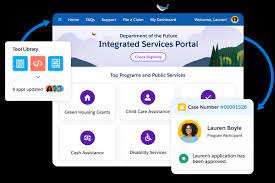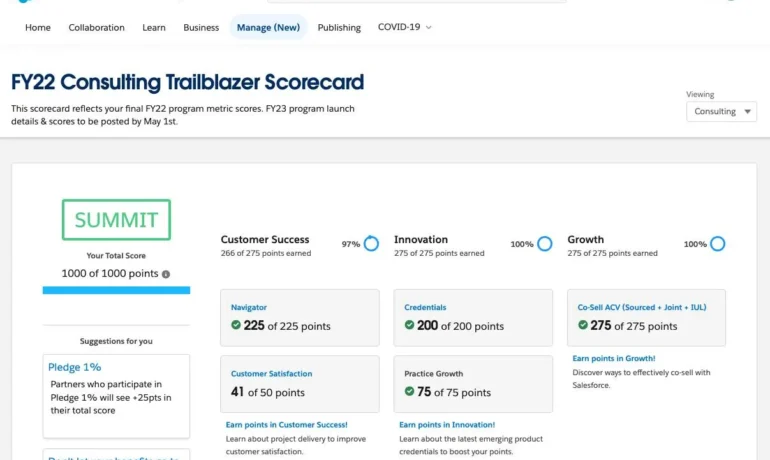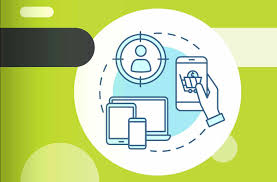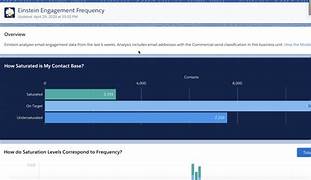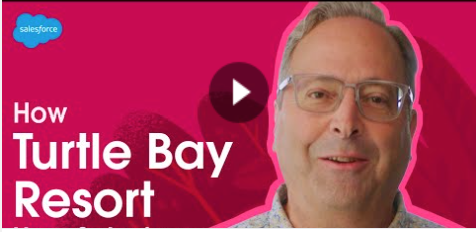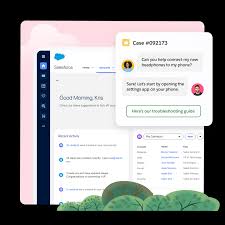When Salesforce Ben, one of our favorite resources for Salesforce information, originally published this list of Salesforce roles and responsibilities in 2021, the number of roles for Salesforce professionals had already grown significantly. Arguably at Salesforce’s current rate of growth and the evolution of new technologies like AI, the list will only get longer. By 2021 I had already been employed in the Salesforce ecosystem for over a decade. Truthfully just a brief two years later the list continues to grow. As the Salesforce ecosystem experiences rapid expansion, IDC (International Data Corporation) predicts the creation of 4.2 million new jobs by the end of 2024. With Salesforce continually innovating and broadening its product suite through acquisitions and development, the growing roles and responsibilities within the Salesforce domain is in constant flux. Now is an opportune moment to enter the world of Salesforce, not only due to its substantial growth but also owing to the diverse array of roles available within the ecosystem. Your perfect job awaits, contingent on your skill set and preferences. Salesforce Roles and Responsibilities Salesforce Admin: Admins play a fundamental role in any Salesforce implementation. Continually ensuring the smooth operation of the system, addressing bugs, and optimizing a company’s investment. Their responsibilities encompass collaborating with stakeholders to comprehend business requirements, utilizing declarative functionality to build solutions, managing user access, and conducting platform maintenance. Salesforce Developer: Salesforce Developers extend the platform using code, supporting Admins and other roles. Their duties include collaborating with Salesforce Admins to validate business requirements, developing Apex code, creating user interfaces, utilizing Salesforce APIs for integration, and adhering to best practices. Salesforce DevOps Engineer: Salesforce DevOps Engineers facilitate smooth deployment of Salesforce changes through the software development lifecycle. Their responsibilities cover source control management, setting up and monitoring DevOps processes, and overseeing the end-to-end DevOps process,. They hold responsibility for ensuring final releases to production. Salesforce Consultant: Salesforce Consultants work on new or existing implementations, helping implement new products or build custom functionality. Responsibilities include scoping projects, creating Salesforce solutions based on user stories, and continually utilizing declarative functionality. They oversee User Acceptance Testing, and provide documentation and training. Salesforce Business Analyst: Business Analysts act as translators, understanding business needs and translating them into Salesforce solutions. Typically their responsibilities include gathering requirements, writing user stories, and facilitating requirements acceptance. Continually applying business process mapping, and presenting outcomes to executive teams. Salesforce Product Owner: Salesforce Product Owners manage the vision, strategy, roadmap, and requirements of Salesforce as a product. Their roles involve collaborating with stakeholders to discover and build the Salesforce roadmap, working with users to understand needs, adhering to a product vision, and prioritizing deliverables. Salesforce Project Manager: Salesforce Project Managers oversee project delivery, ensuring it aligns with scope, timelines, and budget. Their responsibilities include end-to-end project delivery, sprint planning, and holding team members accountable, Thereby they provide effective use of project management tools. Salesforce Solution Architect: Salesforce Solution Architects oversee Salesforce implementations to ensure the correct solution aligns with documented requirements. Their roles involve a deep understanding of Salesforce products, customization, and development, ensuring solutions meet best practices. Solution architects see the big picture. Salesforce Technical Architect: Salesforce Technical Architects are highly technical roles, guiding the technical direction of a project. They consistently possess expert knowledge of Salesforce and surrounding technologies, lead development teams, identify risks, and understand platform limitations. Salesforce Marketers: Salesforce Marketers encompass a range of roles related to marketing automation platforms such as Pardot and Salesforce Marketing Cloud. Responsibilities may include setting up campaigns, reporting on campaign influence, building email campaigns and other marketing assets. Building and managing automation, maintaining data quality, lead qualification, launching advertising campaigns, monitoring website behavior, and technical tasks like data import and SQL queries. In this thriving ecosystem, diverse opportunities cater to varied skill sets and preferences, therefore making Salesforce an enticing domain for career growth and exploration. If your core Salesforce team is missing a solid Salesforce members, reach out to Tectonic today for assistance. Like Related Posts Salesforce OEM AppExchange Expanding its reach beyond CRM, Salesforce.com has launched a new service called AppExchange OEM Edition, aimed at non-CRM service providers. Read more The Salesforce Story In Marc Benioff’s own words How did salesforce.com grow from a start up in a rented apartment into the world’s Read more Salesforce Jigsaw Salesforce.com, a prominent figure in cloud computing, has finalized a deal to acquire Jigsaw, a wiki-style business contact database, for Read more Health Cloud Brings Healthcare Transformation Following swiftly after last week’s successful launch of Financial Services Cloud, Salesforce has announced the second installment in its series Read more


